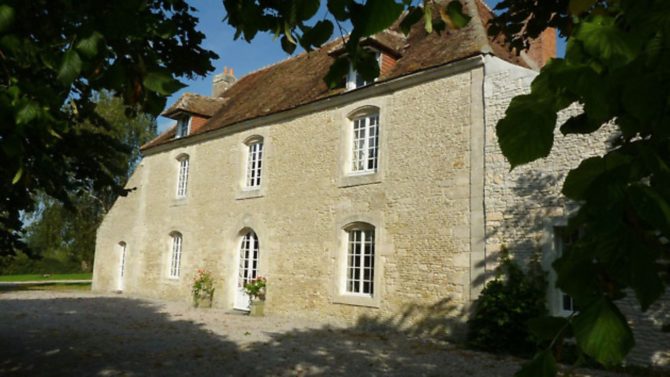Interview with an estate agent in northern France

Edward Lazarus of Domus Abroad shares his view of the property market across the northern half of France
What part of France do you cover?
Domus Abroad works with a network of agents covering most of France, but the traditional ‘heartland’ has been any region within around half a day’s drive of the Channel ports. If you can imagine a large letter ‘C’ drawn on France, most of our properties would be close to the top half of the letter.
What kind of budget does your typical British client have?
Good question, and it’s one of the first ones we ask any prospective client who contacts us! A client looking to eventually retire to France would probably spend up to €200,000, whereas a client looking for a lifestyle change, perhaps with a young family, might spend €250,000-€400,000. We are also seeing clients returning in the €500,000-plus category.
What kind of properties are currently proving popular with your British buyers?
Most have broadly similar requirements. The property should be traditional stone-built, have easily maintainable land of around an acre, have a barn or garage for conversion, be at the edge of or close to a village with commerce, be rural but not isolated, and be private and away from busy roads or electric pylons. Most clients are happy to do some decorating or updating of kitchens or bathrooms, but not to take on a complete renovation project.
How is the French property market looking to you at the moment?
A number of our properties were bought five to seven years ago at the top of the market, and clients are now hoping to get all their investment back plus a profit after renovating. In our opinion this is very optimistic and we work closely with all our vendors to try to price correctly. Prices in Paris, for example, have climbed over 30% in the last five years, whereas in the same period we have seen prices in Upper and Lower Normandy fall at least 10%-15%.
What are your predictions for the market over the next six months?
After a volatile few years, I am pleased to say that things are settling back into the sort of pattern we have been used to over the last 25 years. Broadly speaking, prices in northern France follow those of London and the south-east, with a six to nine month delay, so I expect prices to start rising again in the first quarter of 2015. There has never been a better time to buy!
What are the cheapest and most expensive properties on your books? At the lower end of the market we have a spacious three-bedroom house in Lower Normandy, recently renovated and on the edge of a village, well priced at €79,500. For €2,900,000, we have a magnificent clifftop villa in Deauville with amazing sea views and direct beach access.
What is your dream property pick?
What a hard question! I think my current favourite is an 18th-century stone manoir in Lower Normandy with a detached colombage pressoir and studio cottage, set in 4,500m2 of parkland and priced at just €425,000. In total it boasts 425m2 habitable space – including 11 bedrooms – and there is plenty of space to put in a swimming pool too.
Do you have a favourite French region or department, and why?
Calvados in Lower Normandy. It offers great access routes to the UK by sea, road, rail and air. There are great centres of culture such as Bayeux and the Normandy beaches as well as important towns such as Caen, Deauville and Falaise. Property varies from stone-built farmhouses, to seaside villas, to magnificent manoirs.
What would be your top piece of advice for a French property buyer?
Select your region and department before selecting your property! Some clients underestimate the size of France and end up travelling vast distances and viewing too many properties. Inevitably, they get tired and confused without really moving forward in their search. In our opinion it is best to visit a few areas on separate trips, to get a feel for the countryside and towns before viewing properties.
www.domusabroad.com
Share to: Facebook Twitter LinkedIn Email


